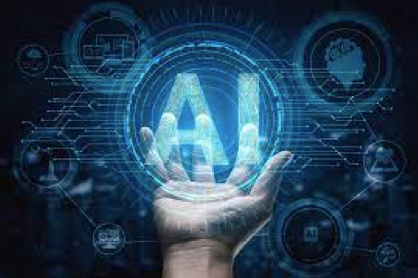Artificial Intelligence (AI) is becoming a major force for change in society, transforming and revolutionizing the way we live and work. Asia Thinkers research the background of AI, the breathtaking speed of development and its influence on business and the workforce, bringing both benefit and risk.
Artificial Intelligence (AI) has become the most discussed topic in the world of technology, having the potential to completely revolutionize the way society functions. It has the potential to radically change many aspects of our lives, from its applications in healthcare and transportation to its use in education and manufacturing.

Credit: Analytics Insights
The Rise of the Artificial Intelligence Powerhouse in Asia
Asian Countries like China, Japan, South Korea, India, Taiwan, and Singapore, have all announced multiple-million-dollar national AI strategies to drive AI readiness and regulate AI deployment. Other countries including Australia, Thailand and Indonesia, have similarly established targeted initiatives and programs in strategic sectors to drive the adoption of AI.
Asia is one of the fastest-growing AI markets in the world. Channel Asia report says, “Certainly, Asia Pacific is expected to emerge as a major market for AI-led initiatives since most countries in the region are establishing committees or task forces for creating national AI strategies, which have either been launched or are on the course of being launched in the next few years.”
Japan and China Leading the Growth
The World Intellectual Property Organization report revealed that Japanese and American companies hold the highest AI patent portfolios, and Chinese research organizations make up 17 of the top 20 academic players in AI patenting and 11 of the top 20 in AI-related scientific publications. China and Japan are among the largest suppliers of industrial robots.
According to a global study by PwC India, the highest increase in the use of artificial intelligence (AI) during COVID-19 times has been witnessed in India. The study also showed that 94% of the over 200 chief executives in India surveyed said they’ve either adopted or are planning to implement AI in their companies. Compared to the main AI global hubs in US and China – ASEAN countries still lag markedly behind. However, Singapore has shown a strong commitment to the development of technology and is currently at the forefront of countries in the region in AI implementation. In 2019, Singapore launched its National Artificial Intelligence Strategy and committed over US$370 million to fund activities related to AI under the Research, Innovation and Enterprise 2020 Plan in a bid to become an intelligent nation, encouraging the use of AI technology and becoming a major Asian hub. Singapore has encouraged businesses to make early adoption of AI and today its algorithms are used in many diverse areas. Finance companies apply it to detect fraud and prevent data breaches in personal information as well as increasingly relying on AI to identify and stop cyber threats on a 24/7 basis.
Among the early adopters in Singapore have been the travel industry customer service operations. AI is being used to not only improve customer service but protect client information. Major breaches in Singapore Airlines and Malaysia’s Malindo Air, show that the travel industry is particularly vulnerable. Another Industry benefitting from AI is the healthcare sector with early adoption in Malaysia and Singapore has seen AI introduced into hospitals and medical centres. One of the biggest healthcare insurers in Singapore, “NTUC Income,” is using IBM Watson to digitally process almost 15,000 monthly claims. Private medical group Parkway Pantai has been using AI since November 2018 to generate accurate hospital bill estimates. Healthtech start-ups are also flourishing in Malaysia, with many of these emerging companies developing AI-based solutions to help improve the access people have to healthcare professionals. Getdoc, Door2Door Doctor, Teleme, HomeGP, are all Malaysian healthcare start-ups that use AI algorithms to help predict your medical needs, customise your healthcare plan and increase your access to medical advice.
During her recent speech at the Asia Tech x Artificial Intelligence conference, The Minister for Communications and Information, Josephine Teo, spelt out how the Singapore Government plans to tap the vast potential of artificial intelligence. “Since 2015, we have used machine learning to process citizen feedback on repairs needed in their neighbourhoods, such as when someone sees a broken swing at the playground. Citizens benefit from faster responses, by the right people.
In 2022 close to 10 million containers and consignments crossed our shores. Another 50 million parcels came through air shipment. We need cargo clearance to be fast but also safe. These twin objectives are better achieved by the use of AI to detect anomalies in scanned images of these shipments. More recently, we have started using AI-enabled image and text comparisons to detect scams. Our phishing detection tool combs through 120,000 websites daily to take down spoof sites used for fraudulent purposes. Without such AI in its arsenal, law enforcement agents will hardly have the capacity to focus on scam prevention or to recover the assets of victims.”
Malaysia and Vietnam are also showing early signs of AI development, although adoption rates remain low. Following the path of Singapore, Malaysia and Indonesia are also on their way towards developing a National AI Strategy. Many of these countries are aware of the potential the technology has to offer but lack the critical infrastructure to properly capitalise on the benefits. A survey by EDBI and Kearney of ASEAN countries including Singapore, Malaysia, Indonesia, Thailand, Vietnam, and the Philippines found that if applied and executed well, AI could add $1 trillion to the region’s GDP by 2030.
Asia Thinkers spoke with an IT consultant based in Sydney who advises businesses on the implementation of Artificial Intelligence:
What areas of business do you see benefiting from AI?
I am currently working to implement AI in the Airline sector, mainly to provide a faster response concerning customer service issues. AI can analyse what people are asking and provide the appropriate response. It can be implemented in many different business environments. For instance, AI can record conversations, it can review big data and look for the commonality in what customers are saying, this takes the workload off people who can never keep up with the amount of data.
Does AI enhance the work experience and bring benefits to employees?
AI enhances the work experience in areas where it is implemented, it cuts out the heavy lifting, brings more efficiency and better productivity to the task and cuts out the mundane work, saving time. This allows the worker to concentrate on more rewarding tasks such as employee relations and management of the business.
As AI evolves what do you see as its greatest potential, will it eventually evolve to replicate human intelligence in a machine?
I don’t think this will happen in my lifetime, but it could develop to fully run an automated factory for instance. As a video gamer, for me, the most exciting prospect which is already happening, is to develop characters in a video game so they can interact in role-playing scenarios where they learn and develop from interaction with the participants.
Do you see any negative effects on the impact of AI on the workforce? Will this create employment opportunities as well?
AI is not a threat to skilled employees or management but is likely to cause several specific jobs to go. Just as telephone operators became automated, so will a lot of similar work be replaced by AI, for instance, “Wendys” in the US uses AI to automate orders at the drive-in.” The areas that are most likely to be affected are customer service, research analysis, and content writing, but new jobs will be created requiring skilled workers to manage AI.
What are your thoughts on AI’s impact on media and the creative arts?
Personally, I think we should sit back and enjoy it, it is here to stay and is just another tool. But you have to realize that it has no soul! For instance, if you asked AI to write a Stephen King novel it doesn’t come from the same tortured mind and wouldn’t be able to replicate the human experience.
“The Consultant further went on to say: “Overall AI technology is managing to play a role in key commercial sectors, from manufacturing, data analysis to customer service and being able to carry out the task in a fraction of the time required by workers. In the longer term, the growing influence of AI will reshape industries from logistics, education and healthcare to automotive and manufacturing .”
The beginnings of modern AI can be traced back to the 1950s when scientists from various fields discussed the possibility of creating an artificial brain. This led to the rise of AI research which was founded as an academic discipline in 1956. The word AI was developed by John McCarthy, who is now considered by many the father of Artificial Intelligence. But it wasn’t until the 1990s that businesses became interested in funding AI and developing its commercial potential. A milestone was reached when IBM developed “Deep Blue,” the first computer to beat a world chess champion, “Garry Kasparov”. AI technology continued to move forward, largely due to improvements in computer hardware and by 2000 corporations and governments started implementing AI in many areas of manufacturing and commerce to carry out automated tasks.
So, what is artificial Intelligence: An Australian IT consultant commented that “AI is commonly referred to as a set of algorithms that can produce results without having to be explicitly instructed”. More advanced AI systems are powered with the help of machine learning and deep learning algorithms and have already shown us their immense potential to benefit society with the ability to make decisions faster than humans and analysis “big data.”
The most obvious benefit of AI is its ability to automate mundane tasks. AI systems are being used to automate large-scale operations, such as data analysis, customer service, and even the production of goods. This frees up human labour to focus on skilled tasks.
Artificial intelligence has penetrated several industries and areas, from banking, transportation to healthcare. A good example of implementation is Google Maps applications and facial recognition systems found on iPhone, all using AI technology to function. Google has also partnered with DeepMind to improve the accuracy of traffic predictions. With the help of historical traffic data as well as live data, they can make more accurate predictions through AI technology and machine learning algorithms. McKinsey Global Survey 2020, 50% of respondents reported that their companies have adopted AI in at least one business function.

